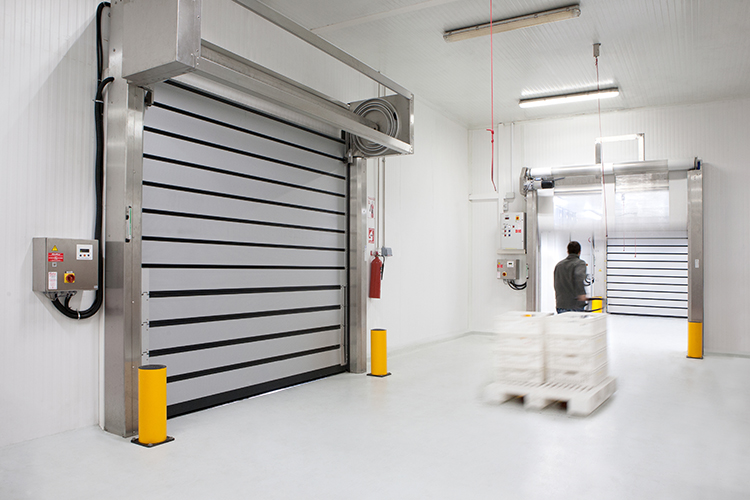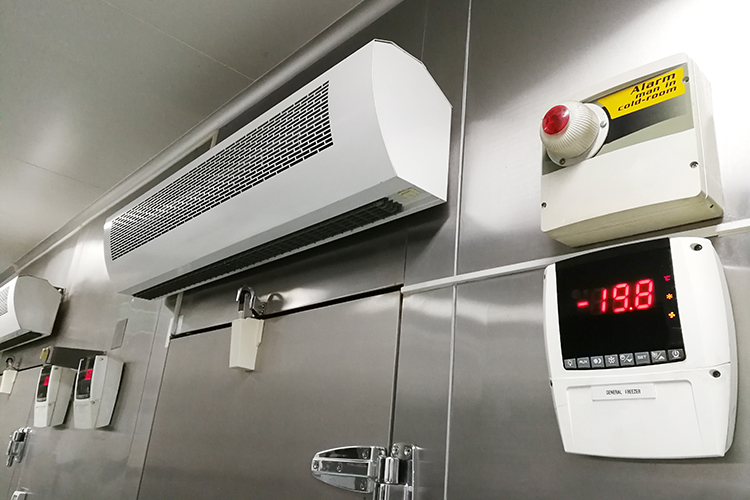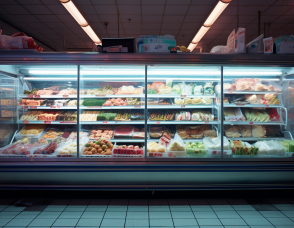Commercial Cold Storage in Western Canada: What to Know & Where to Find It
Cold storage keeps perishables usable during transport between markets. We usually think of cold storage as it relates to food, like meat, dairy, fruits, and vegetables.
But even items like live plants need cold storage. Cooler temperatures help them maintain their blooms better, and seeds need to be kept cold so they can grow. Similarly, did you know items like paintings, cologne, and vaccines also need cold storage for transport? And that precise temperatures must be maintained consistently throughout the transportation process? It’s no small feat!
Jump to any section, if you just need to find commercial cold storage.
That’s totally ok—heck, it’s why we put this list together!
You’re busy, so we scoured local listings across Western Canada to list the best cold storage options for you.
Finding the right facility is one thing, but there are other basics you still need to know. Check out our Frequently Asked Questions (FAQs) before you go!
After the listings, we tackle pressing questions we’re hearing a lot lately.
Questions like: Should you jump on the pharmaceutical cold chain bandwagon? What should you look for in a storage facility? What’s needed for a successful cold chain? And what’s the hottest new tech for commercial cold storage?
We finish strong, so stay tuned!
What Does Cold Storage Have to Do With the Cold Chain?
Maintaining precise temperatures throughout transport is known as the cold chain. It keeps items at the same cold temperature throughout transportation, from the manufacturer to the logistics provider to the recipient. As a result, items are kept in the best possible condition until they reach their destination—and hopefully long after.
There are many types of cold storage. Mobile refrigerated containers store smaller amounts, while cold rooms can store larger quantities. Some methods, like blast freezers and lab freezers, tend to be used by specific industries to store products at the end of the cold chain. Many third-party logistics providers even create custom setups for customers to meet their specific needs.
Depending on where items are headed, the cold chain can be tough to maintain. There’s a big difference between shipping milk and cheese to a grocery store in the same city, and sending vaccines halfway around the world by land or air. The more demanding the situation, the more critical it is to ensure a steady power supply and reliable equipment.
Even though the coronavirus/COVID-19 pandemic caused a sharp downturn in global trade in 2020, it’s expected to rise by 7.2% in 2021. Consequently, now is the time to find commercial cold storage, whether it’s in one specific province, or spread out across Western Canada. With proper cold chain logistics support in place, you’ll be prepared to safely transport your products to their destinations—and maybe even reach new markets along the way.

Where Do I Find Cold Storage in Western Canada?
Many qualified cold storage logistics providers in Western Canada serve British Columbia, Alberta, Saskatchewan, and Manitoba. This section lists providers serving the full geographic area with multiple distribution centers.
Congebec
Quebec-based storage provider Congebec has 12 facilities across Canada, including spaces in Alberta, Saskatchewan, and Manitoba. They’re also the second-largest name in commercial refrigeration in the country, with 45 years’ experience and a strong commitment to food industry safety.
Landtran Logistics Inc.
Based in Edmonton, Landtran has five warehouses in British Columbia and Alberta, serving companies across Western Canada. Landtran customizes services to meet their customers’ needs, so they can accommodate any level of product warehousing, delivery, and distribution.
MTE Logistix
MTE Logistix has found their niche as a regional third-party logistics provider, and they’ve owned that niche for almost 100 years. They have three warehouses and facilities in Edmonton and Calgary (AB), and Delta (BC). MTE Logistix works with a variety of industries and matches their proven processes with individually customized strategies.
VersaCold
For 75 years, Ontario-based VersaCold has been managing all stages of food supply chain logistics with a strong focus on cold chain safety. The company has 11 facilities throughout British Columbia, Alberta, Saskatchewan, and Manitoba—in addition to their national and international locations.
(Got what you needed for listings? Don’t miss out on the FAQs before you go!)
Cold Storage in British Columbia
Cloverdale Cold Storage Ltd.
Cloverdale Cold Storage Ltd. has three facilities in Surrey and a variety of storage services for the food industry, offering temperatures as low as -28°C (-18°F). They also provide container loading, blast freezing, and product packaging, as well as digital systems for precise inventory processing.
Coldstar Freight Systems
Coldstar has refrigeration and distribution facilities delivering food products and providing cold storage in Victoria, Vancouver Island, the Gulf Islands, and the lower mainland. They understand the challenges of island delivery, and they believe in meeting customers’ needs with specially designed services.
Leader Cold Storage
Leader Cold Storage has a distribution center in Richmond, situated near the Vancouver International Airport and Delta Sea Port. The company provides freezer, cooler, and dry storage, as well as freight container loading, meat storage and inspection, and product labelling and co-packing.
(Got what you needed for listings? Don’t miss out on the FAQs before you go!)
Cold Storage in Alberta
4 A’s Express
4 A’s Express transports food throughout Alberta at a range of temperatures and for a variety of industries, and they meet their customers’ needs with dedicated logistics and customized cold storage. Their service area includes 13 communities across northern and central Alberta.
Americold
After acquiring Nova Cold Logistics in 2019, US-based logistics company Americold now has cold storage facilities in Calgary and Taber, as well as Toronto and Halifax. Americold offers temperature-controlled product storage and distribution backed by over 200 offices around the world.
Clauson Cold & Cooler Ltd.
With over 200,000 square feet of warehouse space, Calgary-based Clauson Cold & Cooler Ltd. provides food product storage with high safety standards, 24/7 service throughout Alberta, and temperatures as high as 50°C (122°F) and as low as -60°C (-76°F).
Conestoga Cold Storage
Conestoga Cold Storage serves Calgary, with four more facilities in Ontario and Quebec. All five warehouses offer millions of cubic feet of cold storage, and they are fully automated to allow for seamless delivery across North America. Conestoga also offers round-the-clock support and can completely manage any supply chain.
(Got what you needed for listings? Don’t miss out on the FAQs before you go!)
Cold Storage in Saskatchewan
Aero Delivery
Started in the 1940s, Aero Delivery offers transportation, warehousing, and logistics management with facilities in Saskatoon and Regina. They have a fleet of 35 vehicles, online inventory management, and 120,000 square feet that can be customized for different products.
Congebec
Storage provider Congebec is based in Quebec but has a cold storage facility in Saskatoon, as well as more across the country. They’re one of the largest names in commercial refrigeration in Canada, with over 45 years of experience and a dedication to safety in the food industry.
JJL Storage & Logistics Ltd.
A strategic partner with VersaCold, JJL Storage & Logistics has a cold storage facility in Regina that offers storage at various temperatures, as well as distribution and cross-docking. They believe in building relationships with their customers and customizing their services to meet any need.
VersaCold
VersaCold has been in the business for 75 years and manages the food supply chain from start to finish with a strong focus on cold chain safety. The company is based in Ontario but has a cold storage facility in Saskatoon, with more across Canada and the world.
(Got what you needed for listings? Don’t miss out on the FAQs before you go!)
Cold Storage in Manitoba
Centerport Cold Storage
Centerport Cold Storage has 40,000 square feet of storage in Saskatoon with temperatures of at least -18°C (-0.4°F). They export a variety of meat, poultry, and canned or sealed products throughout North America and parts of Europe.
Congebec
Congebec is a Quebec-based provider, serving Winnipeg and Carberry. They also have additional facilities across Canada. Congebec is well-known in the commercial refrigeration industry and is backed by decades of experience and a passion for food safety.
Iceberg Cold Storage Ltd.
Iceberg Cold Storage Ltd. is a Winnipeg facility, providing goods storage, cross-docking, and customs clearance specific to frozen food. The company provides fast service and access to major transportation hubs.
VersaCold
VersaCold has 75 years of experience in food supply chain logistics, including cold chain safety. They have a cold storage facility in Winnipeg, 10 more across Canada, and support around the world.

Frequently Asked Questions (FAQs) About Cold Storage
1. What role does refrigeration play in the cold chain?
Refrigeration is the cold chain. Whether a product needs to simply be kept cool, or to be frozen at arctic temperatures, it must stay at that temperature for its whole journey, from the manufacturer to the customer. Commercial refrigeration maintains the required temperature and ensures the product reaches its destination in prime condition.
2. What’s needed for a successful cold chain?
There can be any number of points along a supply chain, but they typically fall into three categories: manufacturing, transportation, and destination. This means the products in a cold chain need refrigeration at every point.
- Manufacturers (or logistics companies packaging their products) need cold storage in their distribution center, including case-picking and repacking as needed.
- Transporters need vehicles equipped with refrigeration units—whatever they’re operating, from trucks and trains to ships and planes. In other words, this allows for a seamless product transition between the manufacturer and the destination.
- Finally, destinations need product refrigeration up until use. The product may pass through several distribution centers before reaching its destination, so each facility must be set up for cold storage.
3. How does proper maintenance support commercial refrigeration?
Just like with any commercial industry, maintenance keeps everything running smoothly. And in the case of commercial refrigeration, it also keeps the cold stuff cold. If one moving part in a refrigeration system stops working, it can spoil an entire shipment. Replacing product and repairing any damaged parts costs time and money. In other words, staying on top of maintenance pays for itself, by minimizing potential lost product and saving you down time.
4. Why do I keep hearing about cold storage right now?
Cold storage is a hot topic in the transportation and logistics industry because it’s proving to be a particular challenge during the coronavirus/COVID-19 pandemic. Vaccines have to be consistently kept at a specific cold temperature throughout the supply chain. We may joke that in Canada, we don’t need refrigerated trucks because of our climate… but that’s simply not the case.
In fact, the Pfizer coronavirus/COVID-19 vaccine has to be kept at -70ºC (-94°F) at all times. If the temperature changes at any time, the vaccine may no longer be as effective.
This extreme is unusual, as many vaccines only need temperatures in the positive single digits; even in certain special cases -25°C (-13°F) may suffice. Did you know product losses from compromised vaccines cost approximately $43.4 billion (CAD) each year, even at more moderate temperature requirements?!
Many freezers simply aren’t designed to maintain temperatures to -70°C (-94°F); only lab freezers can accommodate that. As a result, there’s also a shift within the industry as several companies are renovating their existing cold storage warehouses to accommodate the coronavirus/COVID-19 vaccine’s extreme temperature needs.
5. Should I jump on the pharmaceutical cold chain bandwagon?
Switching to pharmaceutical cold storage, especially with coronavirus/COVID-19 in mind, doesn’t just mean changing the temperature setting on a freezer.
- Vaccine storage comes with more complexities than the standard cold chain can handle, like 100% reliable power and flawless security systems. Therefore, the cost of implementing these new considerations is high, especially because many cold storage warehouses are already several decades old.
- There’s much more training required and a much lower margin for error. Employees need to learn how to handle vaccines, and if they don’t do it correctly every time, it could be disastrous for the business.
- There’s already a shortage of cold storage for food, to the tune of about 100 million square feet of space in 2019. This shortage worsened when the world went into lockdown and the food industry saw a massive surge from panicked shoppers.
In short, it’s better for existing cold storage providers to focus on meeting the needs of their existing customers.
(Rather than jumping onto the bandwagon and expanding into areas already served by existing pharmaceutical logistics companies).
6. What’s the hottest new tech in commercial cold storage?
On average, warehouses designed for cold storage are at least 30 years old. Depending on circumstances, some providers opt to build new facilities from scratch rather than renovating an existing warehouse. When in doubt, talk to our qualified team of refrigeration experts to help you understand your best options for both new builds and retrofits.
Bottom line? Making the most of these technologies, means savings that logistics providers can pass on to you:
- Artificial Intelligence: Right now, logistics providers are doing their best to keep workers six feet apart, and a single COVID case can shut down a warehouse and cause widespread supply chain delays. Using a combination of artificial intelligence and robotics can help with product selection, packaging, and movement throughout the facility.
- Optimal Ventilation: Remember how the coronavirus/COVID-19 vaccine needs to be stored at an extremely low temperature, and requires a specialized type of pharmaceutical freezer? Unsurprisingly, this freezer generates quite a bit of heat! Using rows of freezers, known as freezer farms, concentrates the heat and improves venting. This in turn reduces the strain on the warehouse’s cooling system.
- Energy Efficiency: Some logistics providers are also focusing on more energy-efficient alternatives for components like motors, compressors, sealing, doors, and lighting. By using more efficient tools and technologies, these providers reduce fuel usage and waste—thereby reducing their service cost to you. In addition, if you’re looking to reduce energy costs on your existing refrigeration equipment, talk to our team today about retrofitting cold storage facilities to reduce energy costs and lost product.
7. What should I look for in a commercial cold storage warehouse?
Until recently, commercial refrigeration warehouses only had to meet basic expectations: receiving, managing, and sending out product. As a result, it was up to the manufacturer’s supply chain manager to manage everything else, including accommodating various products’ needs.
Now, however, there’s a greater shift toward specialized service. In exchange for a long-term business relationship, logistics companies are offering customized cold storage packages for your specific products.
For example, do your products need to be kept at different temperatures? Or have different shelf lives? Or do some spoil more quickly than others?
There isn’t one single storage setup for every need. Therefore, if you can find a logistics provider who understands your products’ specific storage needs and can offer you a one-of-a-kind setup… it might just be a good idea to sign on the dotted line!

We’d Love Your Feedback
As an essential service provider in the HVAC/R industry, the Gateway team understands what it takes to do refrigeration right.
We hope this guide helped you track down a cold storage facility to suit your needs. Similarly, we hope you’re also leaving with a better understanding of some of the industry’s hot topics.
Now we want to hear from you. Is there a cold storage facility you feel should make this list? A hot new tech you think we need to include? We hope you’ll take a moment to let us know in the comments section below!
*Please note: Gateway Mechanical doesn’t endorse any of the companies or products backing these articles, and we don’t receive any payment or other compensation for including their articles in this list.









